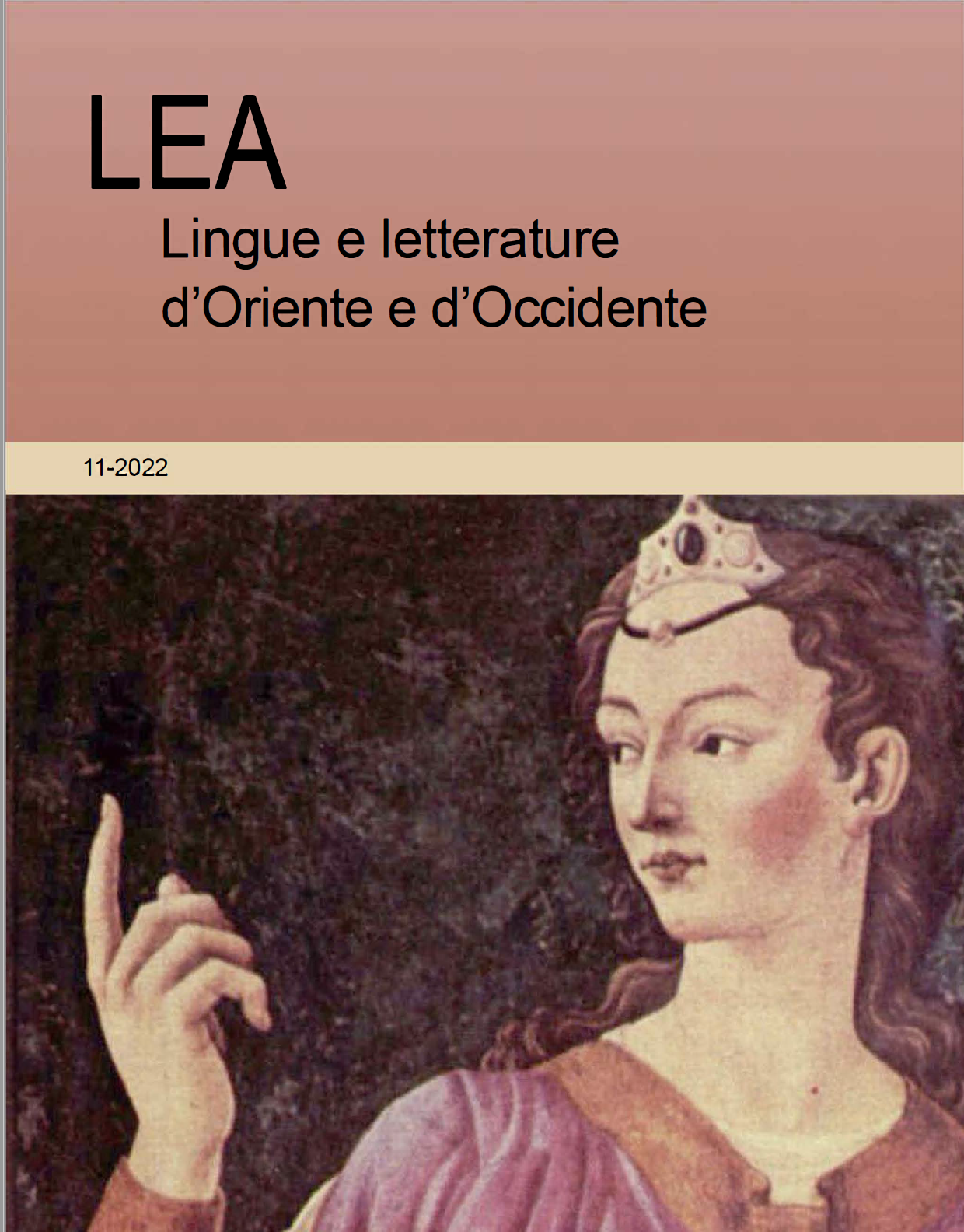La figura dell’anziana nella letteratura giapponese del dopoguerra. Neko no sōshi (1974) di Enchi Fumiko
Published 2022-12-23
Keywords
- Enchi Fumiko, cats, rōjomono, senility, human-animal relation, animacy
Copyright (c) 2022 Daniela Moro

This work is licensed under a Creative Commons Attribution 4.0 International License.
Abstract
Since 1965 circa, Enchi Fumiko (1905-1986) started focusing on elderly women’s figures, producing a series of works called rōjomono 일큽膠(stories of elderly women). The 1974 short story “Neko no sōshi” 챔ㅞ꿇綾 (“Cat albums”) is considered part of the genre. This article analyses how “Neko no sōshi” relates to its Postwar literary context, investigates its peculiar narrative structure, and emphasises the crucial figure of the cat, together with its link with dementia as it emerges from the work through the cat albums. The aim is to show how, in the social context of the 1970s, “Neko no sōshi” highlighted a new point of view on the theme of senility, no longer seen as a burden for the family, but as a possibility to regain agency for the elderly.

